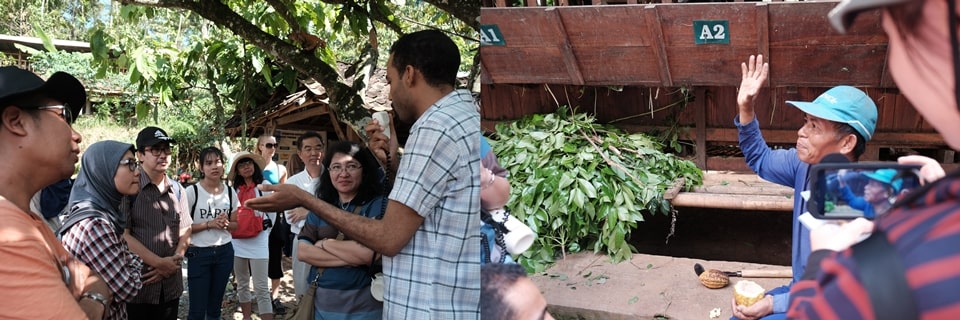The European Commission's Education, Audiovisual and Culture Executive Agency (EACEA) finished its evaluation of the Joint Master of Science in Food Security and Climate Change (MS FSCC) program developed by the Southeast Asian University Consortium for Graduate Education in Agriculture and Natural Resources (UC). The project, funded by the ERASMUS+ Capacity Building for Higher Education program from 2016-2019, is undergoing institution among partner universities despite the restrictions brought by the pandemic. EACEA noted that the project team “demonstrated to be committed in developing a new joint Master programme.” The evaluation also recognized that “the consortium has fulfilled its objectives and delivered most of its expected results as outlined in the grant agreement while most of the results and outputs are of good quality.”
The MS FSCC aims to develop professionals who will address the challenges of food security in the context of the ASEAN integrated market. The developed joint degree program was based on the model of Erasmus Mundus Joint Master Degrees in Europe. Participating institutions planning to offer the degree include Universiti Putra Malaysia (UPM) in Selangor, Malaysia; Universitas Gadjah Mada (UGM) and Institut Pertanian Bogor (IPB) in Indonesia; Kasetsart University (KU) in Bangkok, Thailand; and the University of the Philippines Los Baños (UPLB) in Los Baños, Laguna, Philippines. Universitas Brawijaya (UB), who became a regular member of the UC in 2019, also plans to institute the program. These HEIs have been working together within the UC, with SEARCA serving as Secretariat.
In 2017, the project piloted the offering of a double/dual degree in MS FSCC. The students participated in exchanges in Southeast Asia and in Europe, summer schools, and joint research. The Summer School is an intensive course on Sustainability Assessment in Agricultural Production and Food Processing and is required in MS FSCC. It combines theory, case studies, group discussions, and fieldwork. According to the EACEA “The project has successfully contributed to the internationalization of the HEIs through the implementation of a dual/double degree, leading to a possible joint Master degree among the university members of the Southeast Asian University Consortium on Graduate Education in Agriculture and Natural Resources (UC).” One of the dual/double MS FSCC graduates, Mr. Ariyanto Kurnia Bagus, received three MS degrees from IPB, KU, and Montpellier SupAgro in France.

Other Southeast Asian partners of the project who also participated in the activities but are non-UC members include Chiang Mai University and Prince of Songkla University both in Thailand, Nilai University in Malaysia, and University of Battambang (UB) and Royal University of Agriculture (RUA) both in Cambodia. Central Luzon State University (CLSU) in the Philippines, who recently became an affiliate member of the UC in 2021, also participated in the project and expressed its intention to offer the developed joint degree in MS FSCC. RUA likewise intends to offer the program. EACEA noted that the “Impact on partner countries institutions and/or Higher education systems, sustainability and exploitation of results are satisfactorily addressed.”
Besides CLSU, the UC has two additional affiliate members as of 2021: Maejo University in Chiang Mai, Thailand, and Visayas State University in Baybay City, Leyte, Philippines. Together with associate members Tokyo University of Agriculture (Tokyo-NODAI) in Japan and National Taiwan University (NTU) in Taiwan, this network of institutions offering MS FSCC will enable students to get the best perspectives from different universities.

